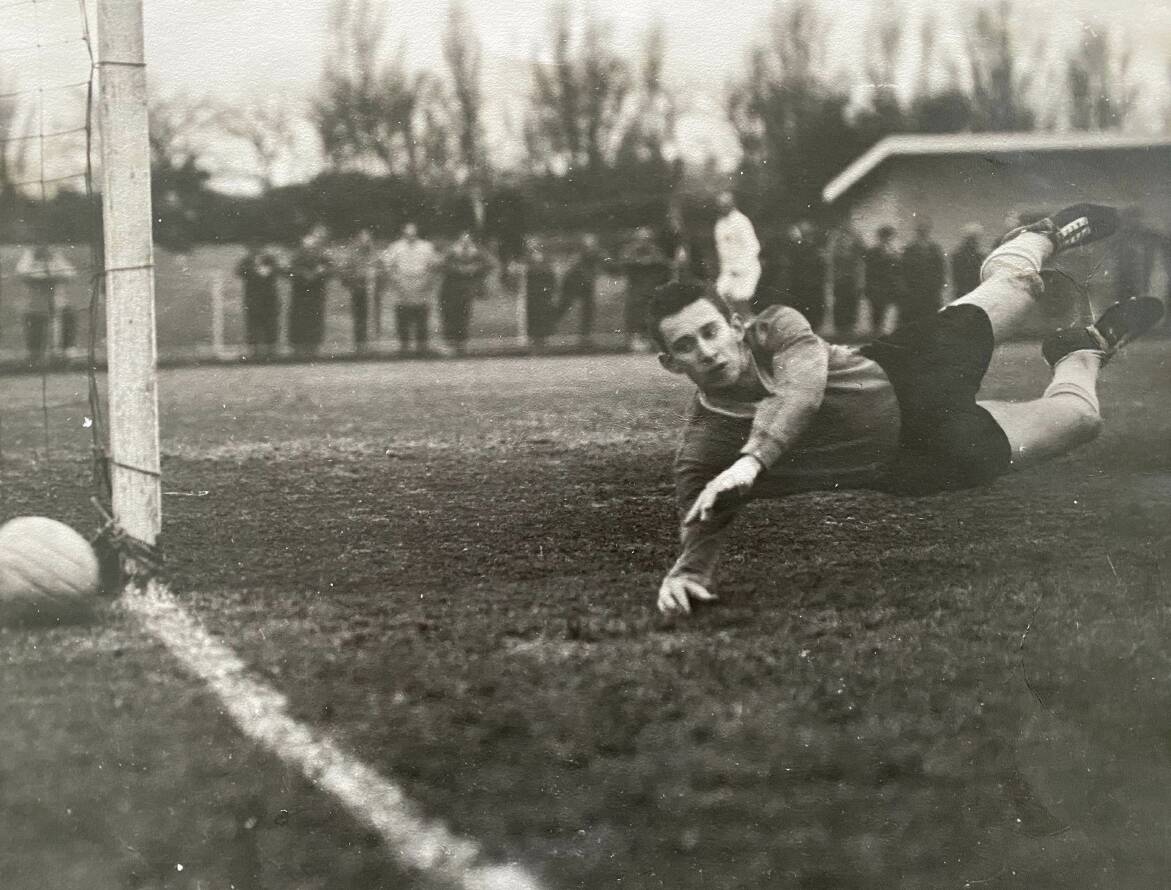
Every four years, the talk of World Cup qualifiers brings back memories for Bill Rorke. And as the Socceroos prepare to take on the UAE - and then hopefully Peru - in the final stages of qualifying for the 2022 tournament, Rorke can't help but cast his mind back to 1965, when the then 20-year-old was selected in the national team's first ever World Cup qualifying series.
In a rather surreal moment, Kearsley boy Rorke was pleasantly surprised to see his former Aberdare Rangers junior teammate - and fellow goalkeeper - John Roberts in the squad.
"It was the 1965 World Cup qualifiers, our first ever World Cup qualifiers," says Rorke, now 76. "Two goalkeepers picked out of the whole of Australia - Johnny Roberts and I."
To qualify for the 16th and final spot in the tournament, Australia simply needed to defeat North Korea in a two-legged tie played in neutral Cambodia - something the team was supremely confident of doing.
"So we got on the plane to go to Cambodia, we're playing North Korea," he says. "Now North Korea are going to be a walkover, we're going to England for the World Cup finals, boys. All we've gotta do is get rid of this bunch from North Korea, easy, and away we go."
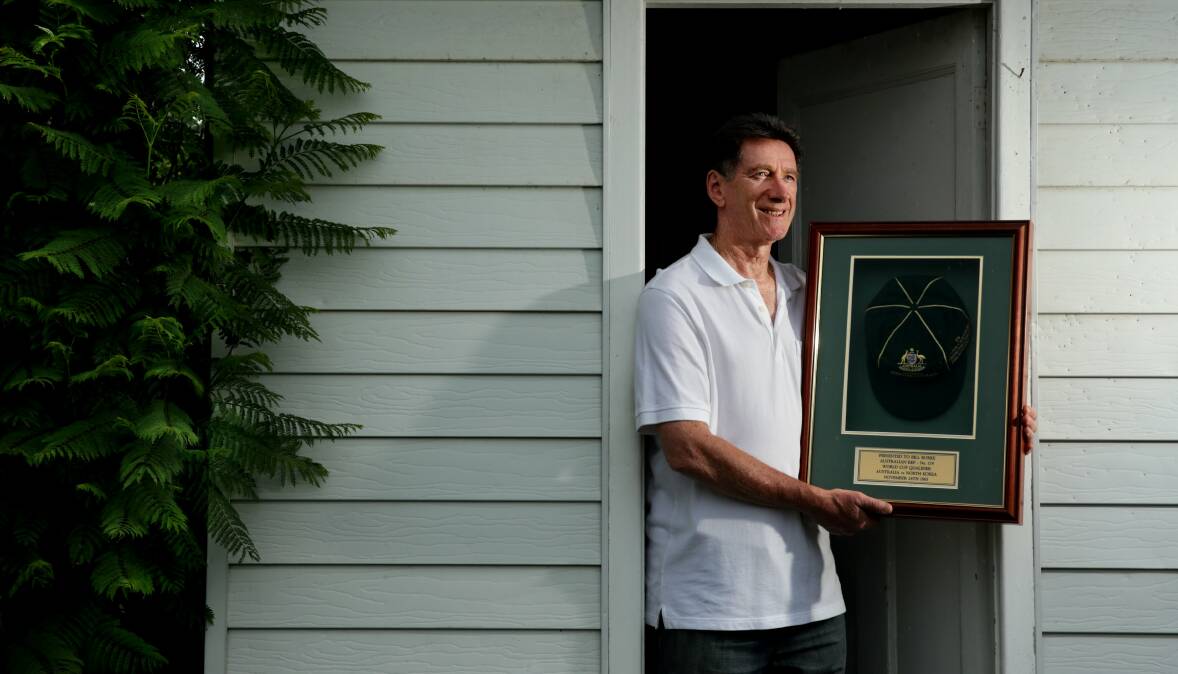
But the team had no idea what it was in for. While the Australians were busy dreaming of London, North Korea had been meticulously planning their qualification tilt long in advance.
"North Korea had been doing their homework and they'd been on a tour around Europe, playing against Russian teams, which we didn't know about," says Rorke.
With Roberts selected in goal for the first leg, Rorke soaked up the atmosphere from the benches of a near full National Olympic Stadium in Phnom Penh.
"It was amazing. It was this big, circular stadium," he says. "65,000 people, it was massive. It felt like the sky fell in when they were screaming."
But instead of wiping the floor with their opponents and booking their tickets to England, North Korea gave the Australians a reality check for the ages, thrashing them 6-1.
"I was shocked. It was pure and unadulterated shock. 'When's this gonna end? When are we going to come out of this nightmare and get hold of this game?' It never happened," Rorke says.
"North Korea were fantastic. They were quick, they were sharp - they were really really good."
Ironically, the disastrous result ultimately gave Rorke his chance in the second leg, as he replaced his mate Roberts to make his international debut. And despite the high stakes, he made sure he put emotions - and nerves - aside once he found out the news.
"It wasn't bittersweet. With me back then, I was a kid and quiet and shy," says Rorke. "They picked me, so it was kind of like, 'Ok, my turn. Team's picked, I'm in goals. I've gotta go and do it.'"
Despite his best efforts, Australia went down again - this time 3-1 - and crashed out of the qualifiers, putting a dampener on the side's post-qualifying series tour through South-east Asia.
"We went to Hong Kong with our tails between our legs," Rorke said.
Charging at Hampden
Exactly 20 years later, it was Graham Jennings on the World Cup qualification trail.
The former Adamstown Rosebud, who played more than 80 games for the national team between 1983 and 1989, including 44 full internationals, experienced the full breadth of emotions while representing the green and gold, perhaps best encapsulated by the team's qualification run for the 1986 World Cup.
After topping a group consisting of Israel, New Zealand and Taiwan, Australia drew star-studded Scotland, who had the likes of top-line players Graeme Souness, Gordon Strachan and Kenny Dalglish.
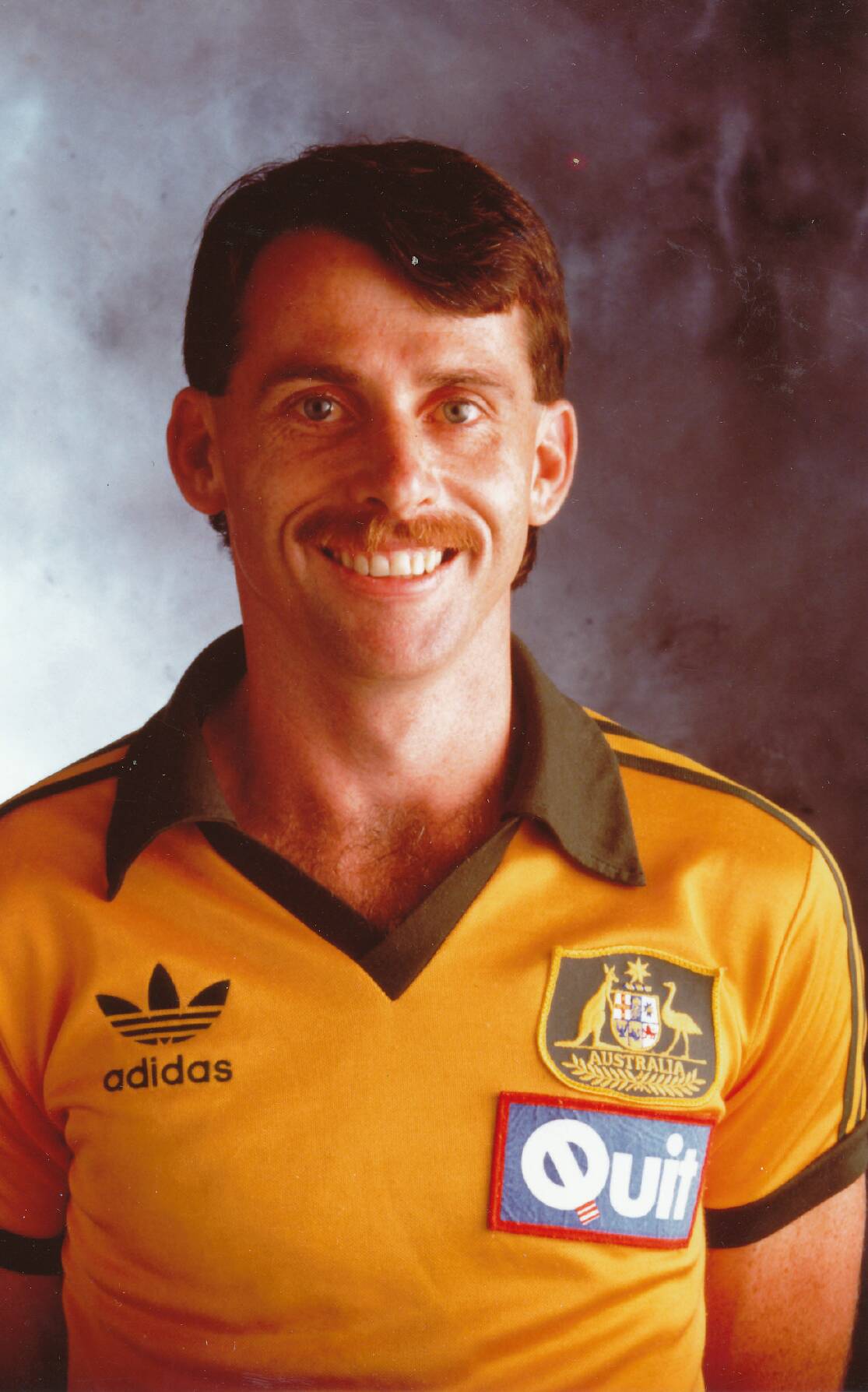
"First game over there, it was like the charge of the light brigade really. We played at Hampden Park. It was a cold night, it was wet, it was slippery. They had a world-class team," Jennings says.
And despite going down 2-0 and ultimately falling at the last hurdle after drawing the return leg in Melbourne 0-0, Jennings cherished the experience of playing at the famous venue in Glasgow.
"It was incredible, and it was kind of uplifting. Not as in pro-Australian, but it was just part of that atmosphere. You could cut it; it was that thick," he says. "They were very patriotic towards their own team."
Putting in a shift
While the Socceroos players that will take on the UAE next week are full-time professionals on big-money contracts, in decades gone past it would often cost players money to represent their country, forcing many to balance their work and football commitments.
This was no more evident than in the case of former West Wallsend goalkeeper David Bone, 92, who represented Australia throughout the mid-1950s.
While billeted with the national team at the Great Northern Hotel in Newcastle the night before a game, newly married Bone slipped out of the hotel to do a dogwatch shift at Lysaghts, where he worked as an electrician.
"I went out to do a shift, came back in, went down for breakfast and nobody ever knew I'd been out," Bone says. "I wouldn't have been paid for anything, so I couldn't afford to lose the shift."
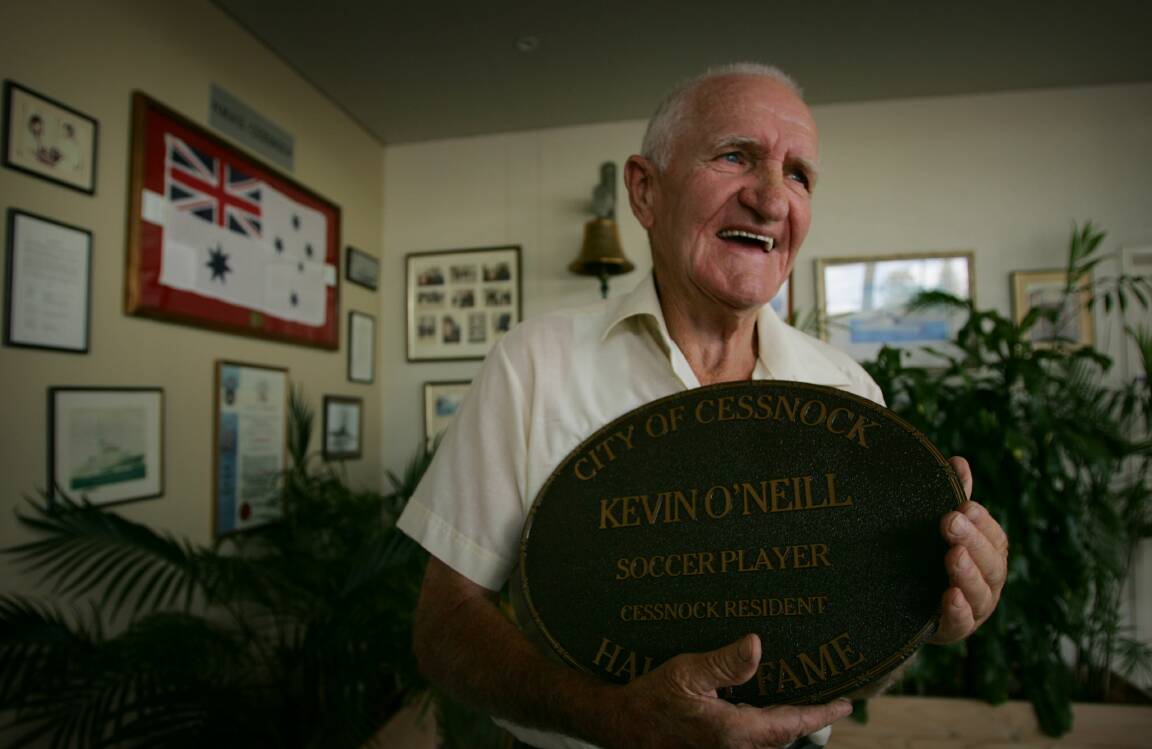
It was a similar story for one of Bone's representative teammates in the 1950s, Cessnock's Kevin O'Neill.
Like many footballers of the time, O'Neill was a miner, working in the pits in and around Cessnock. And in order to make ends meet, it meant that he often travelled directly from his shift in the colliery to a game - even when representing Australia.
Lucky for O'Neill though, in the football-mad Cessnock pits he often had some inside help that allowed him to knock off early before donning the green and gold.
"The overman knew what I was doing, because one of them was a real football man," says O'Neill. "I'd go to work, make sure that the overman saw me when I was down in the pit, and then I'd walk from the pit bottom up to the north tunnel up at Neath hill, then walk home, get the car and go to Newcastle to play football."
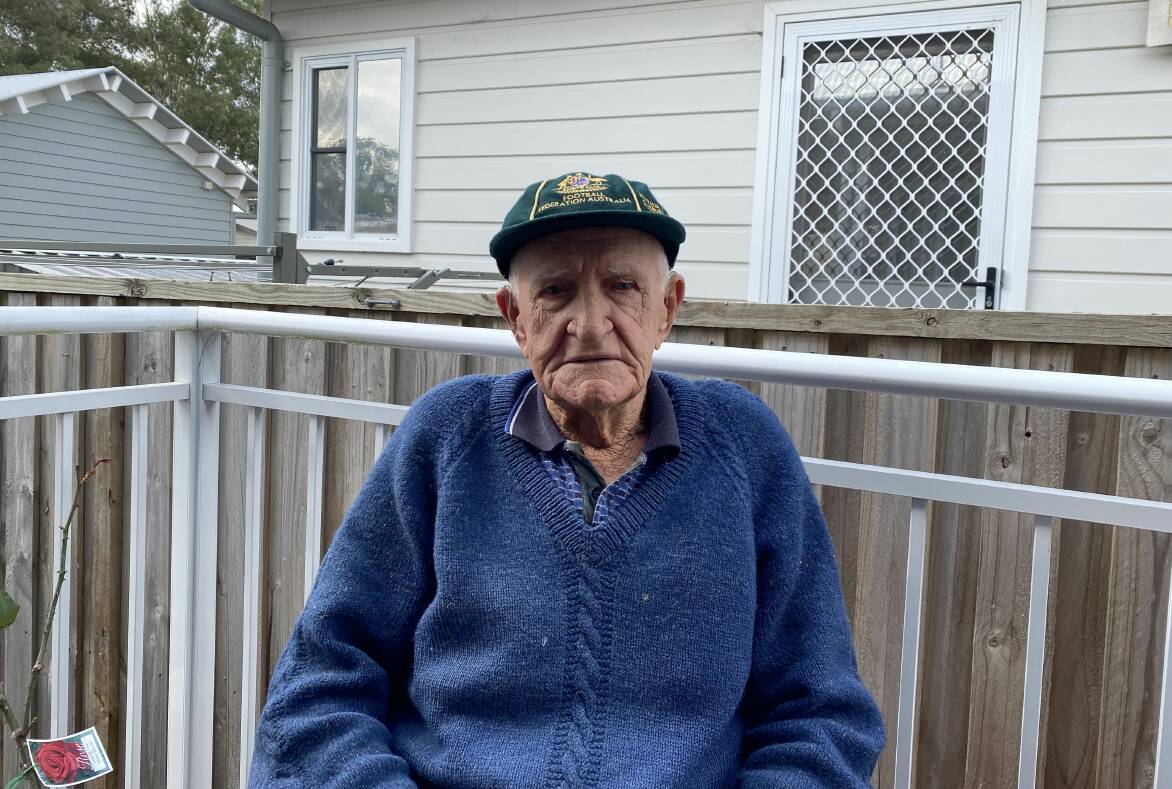
With around 60 games for the national team, the 96-year-old is not only the oldest living Socceroo, but he is one of Australian football's most underappreciated greats.
A bustling utility who could play anywhere from wing half-back to full-back and centre-half, O'Neill captained the national team on a number of occasions throughout his decade-long run with the national team.
Up until the 1970s he was Australia's most-capped player, in a career that included being selected on overseas tours to South Africa in 1950 and New Zealand in 1958.
"The best thing I ever got was the trip to South Africa, something that I would have never done on my own," O'Neill says.
The team played an 18-match tour in the country, including four test matches against the South African national team, turning out in front of crowds of up to 20,000 in Durban and Johannesburg.
Off the pitch, they also saw the reality of the early days of South Africa's apartheid regime, installed just two years earlier.
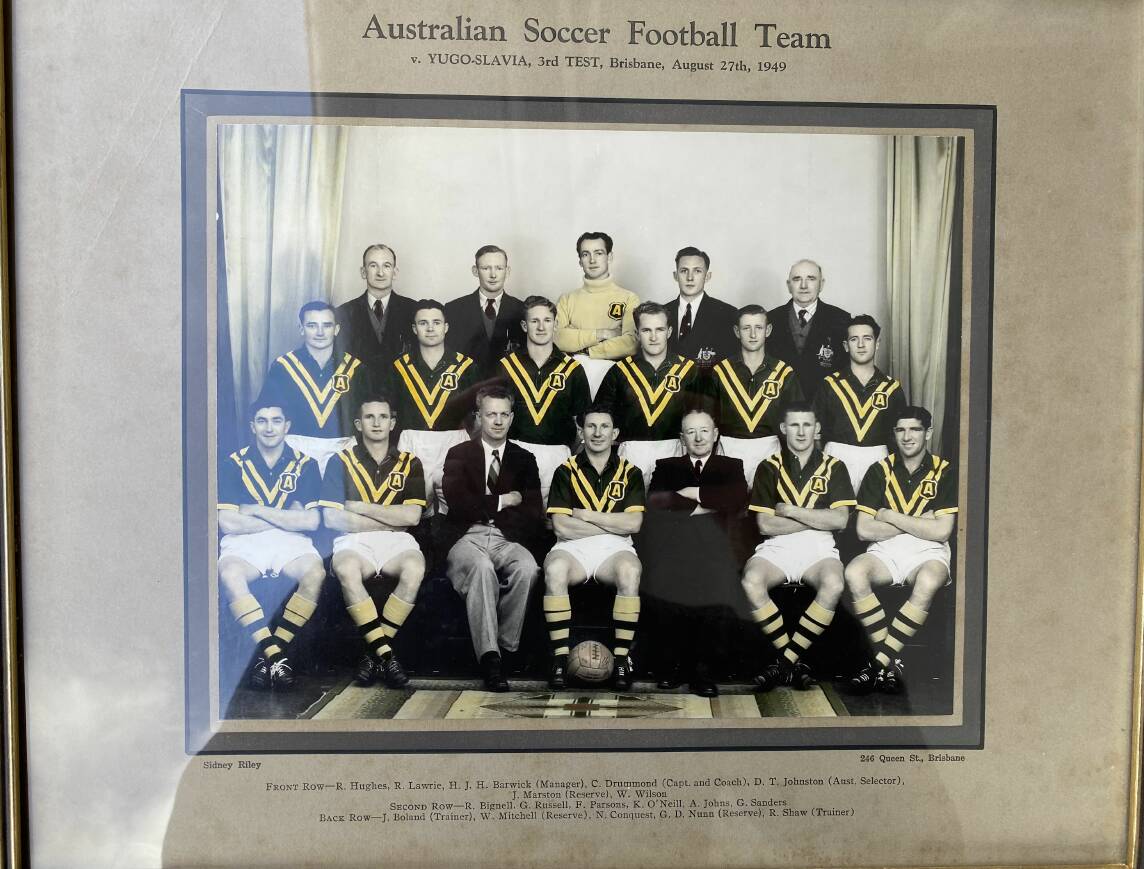
"When we were first there, you'd go for somewhere to eat and they'd call you 'master'. I'd say, 'Don't call me that,'" O'Neill says, noting that the team were forbidden from interacting with South Africa's black population.
"We had to be separated. If you went anywhere and got on a bus, the blacks would sit at the back and you would sit at the front."
But just like all great careers, there were undoubtedly some tough moments on the pitch, perhaps none more so than when O'Neill lined up for Australia against a truly dominant English FA XI in 1951.
"I was picked to play in Adelaide for Australia against the Poms and they beat us 13-2. 13-2 we got beat! So the next week they were playing Australia at the Sydney Cricket Ground but I wasn't picked, so I was sitting on the sidelines," he says. "A bloke called Mickey Duff said to me, 'What's it like to get beat 13-2?' I said, 'Well, it is what it is.' And then after the game I went into the shed, he was playing, and I said, 'What's it like getting beat 17-0?'"
Matildas and missiles
When it comes to international tours, perhaps none were more eventful or bizarre than the Matildas' 1998 North Korean tour, which included Newcastle midfielder Shelley Youman.
Despite protests from the Australian government, football officials organised a three-match friendly tour with the North Koreans to help prepare the team for upcoming qualifiers for the 1999 FIFA Women's World Cup.
"Honestly, if I would have been 10 years older I wouldn't have gone, I would have been too scared. But being my stupid, young self I thought, 'Oh, I'll be right,'" Youman says.
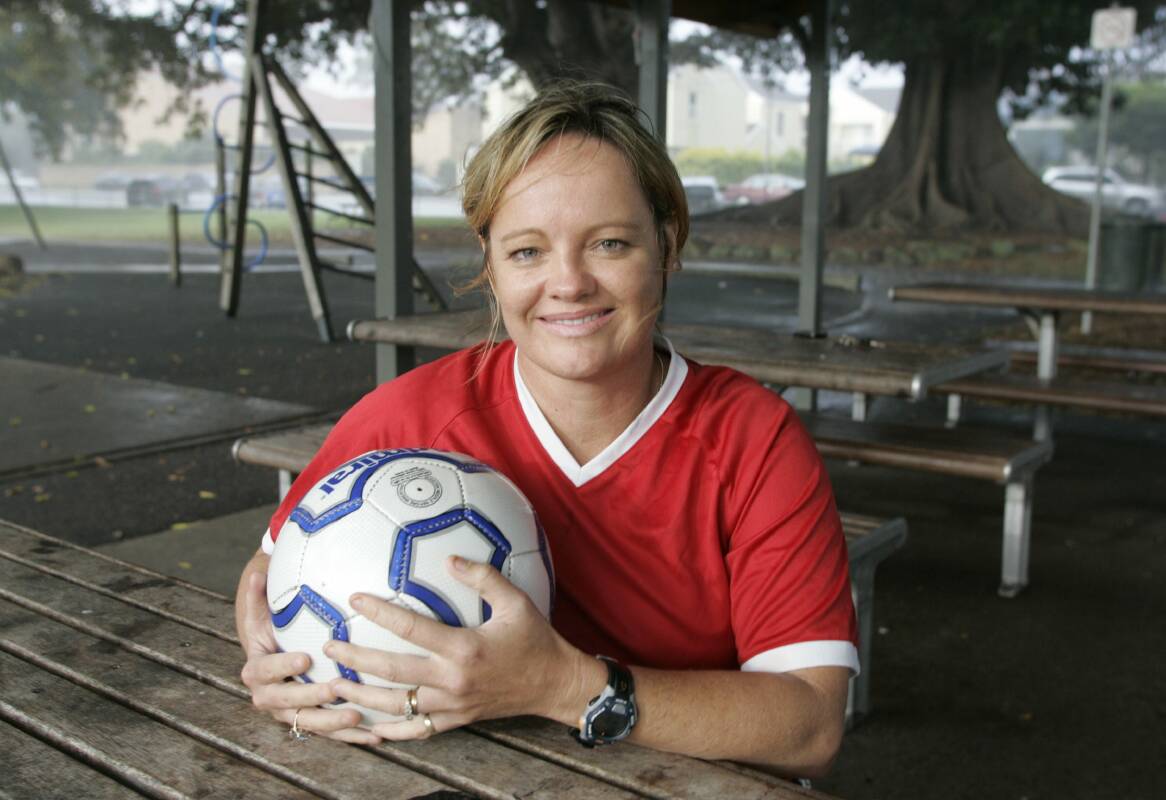
Once they had arrived in the notoriously authoritarian country, the team were kept on a close leash by the North Korean authorities.
"We had to be chaperoned everywhere, and the reason being that they told us was that if we didn't, people would think we're American and they'd get very angry at us," Youman says.
"I also had a phone call hung up on me when I was talking to my husband about some of the conditions there."
In fact, although they didn't know it at the time, the team almost got caught up in global conflict, after North Korean officials drew the ire of the international community by launching a long-range, ballistic missile over Japan and into the Pacific Ocean.
"We heard nothing about it, and my husband Mark was frantic. He said, 'What is going on over there?' And I was like, 'What are you talking about? I haven't heard anything.' You don't get any news there."
While a bizarre experience off the pitch, the three-match series was also an incredibly memorable one on it, as the Matildas played out two draws and secured a win at the national stadium in Pyongyang.
"We went to have a look at the field before the game, and they were hand cutting the grass because they had no fuel in the country. And they still had all the lines. It looked perfect. But it would have all been manual labour," Youman says.
"But the stadium was absolutely packed. They would have been made to come," she says. "It would have had about 50,000-60,000 people, so the biggest crowd I'd ever played in front of.
"But they were all dressed up in the same dresses, all different colours. Kim Jong-il was there, the army was there, sitting there watching. It was incredible."







